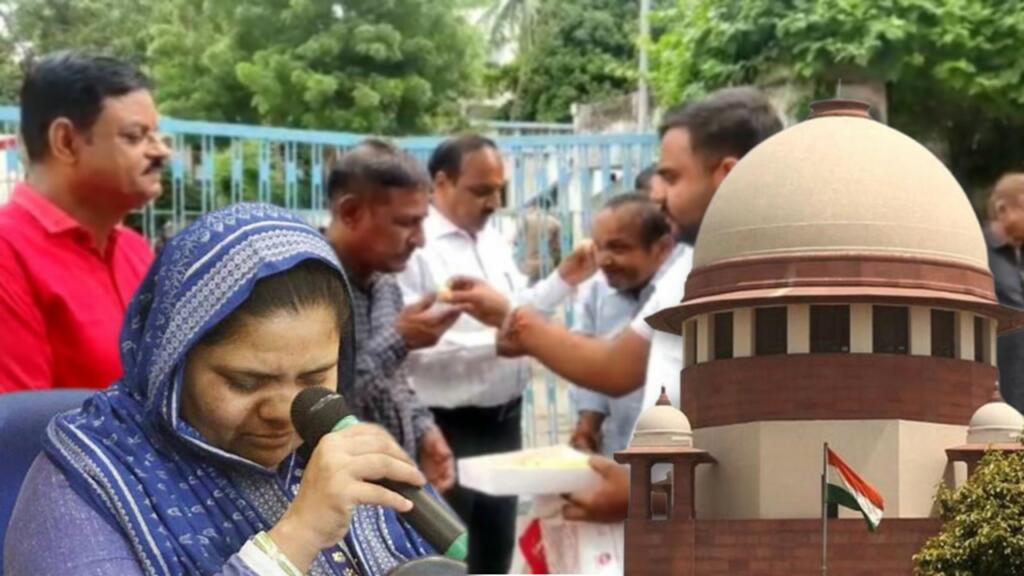Bilkis Bano Case: Bilkis Bano has got a new hope for justice. Chief Justice D.Y. Chandrachud is himself looking into it. He has agreed to constitute a special bench to hear petitions against the premature release of her rapists.
Bilkis Bano Case – Complications
Till now, Justice Ajay Rastogi and Justice Bela Trivedi were hearing the various petitions relating to it. Justice Trivedi decided to recuse herself from the Bilkis Bano Case. It is assumed that her recusal is based on the fact that she was Law Secretary of the Gujarat government between 2004 and 2006.
With her recusal, it became impossible for the two-judge bench to club writ petitions and PILs into one and hear them. Therefore, Justice Rastogi asked Advocate Shobha Gupta to mention it when he is sitting in a different combination, so that it can be tagged. Now, a different bench would be hearing it.
Also read: Ali Mohammed Balwa v. ED: Time pass legal activist will be buried under debt now
Legal complications
In October last year, 11 rapists of Bilkis Bano were released by the Gujarat government. It was a premature release since they were sentenced to life. Time and again, the Apex Court has reiterated that a life sentence doesn’t mean 14 years. However, Sections 432 and 433 A of the CrPC empower governments to grant premature release. Section 433 A prescribes that a person serving life imprisonment can be released only after 14 years.
In Bilkis Bano Case, there is one more legal twist. The Gujarat government recommended the release of “rapists” in accordance with the more liberal 1992 policy. The updated 2014 policy is strict in the sense that it recommends an absolute ban on the release of murder and rape convicts. Rishi Malhotra, the lawyer for released convicts, told the court that if there are two policies, the more liberal one needs to be implemented.
Also read: In numbers: Poor state of legal system in India
Another reason for sticking to the 1992 policy is that the Supreme Court has directed the Gujarat government to use it when a conviction is established. In Bilkis Bano Case, a conviction was laid out in 2008, during which 1992 policy was the norm. Therefore, the Gujarat government used that policy. The release looks prematurely legal. But it is not moral. The Apex Court needs to use its special power under Article 142 to do complete justice to Bilkis Bano.
Support TFI:
Support us to strengthen the ‘Right’ ideology of cultural nationalism by purchasing the best quality garments from TFI-STORE.COM
Also Watch:
https://www.youtube.com/watch?v=nL32v-71Fo8
